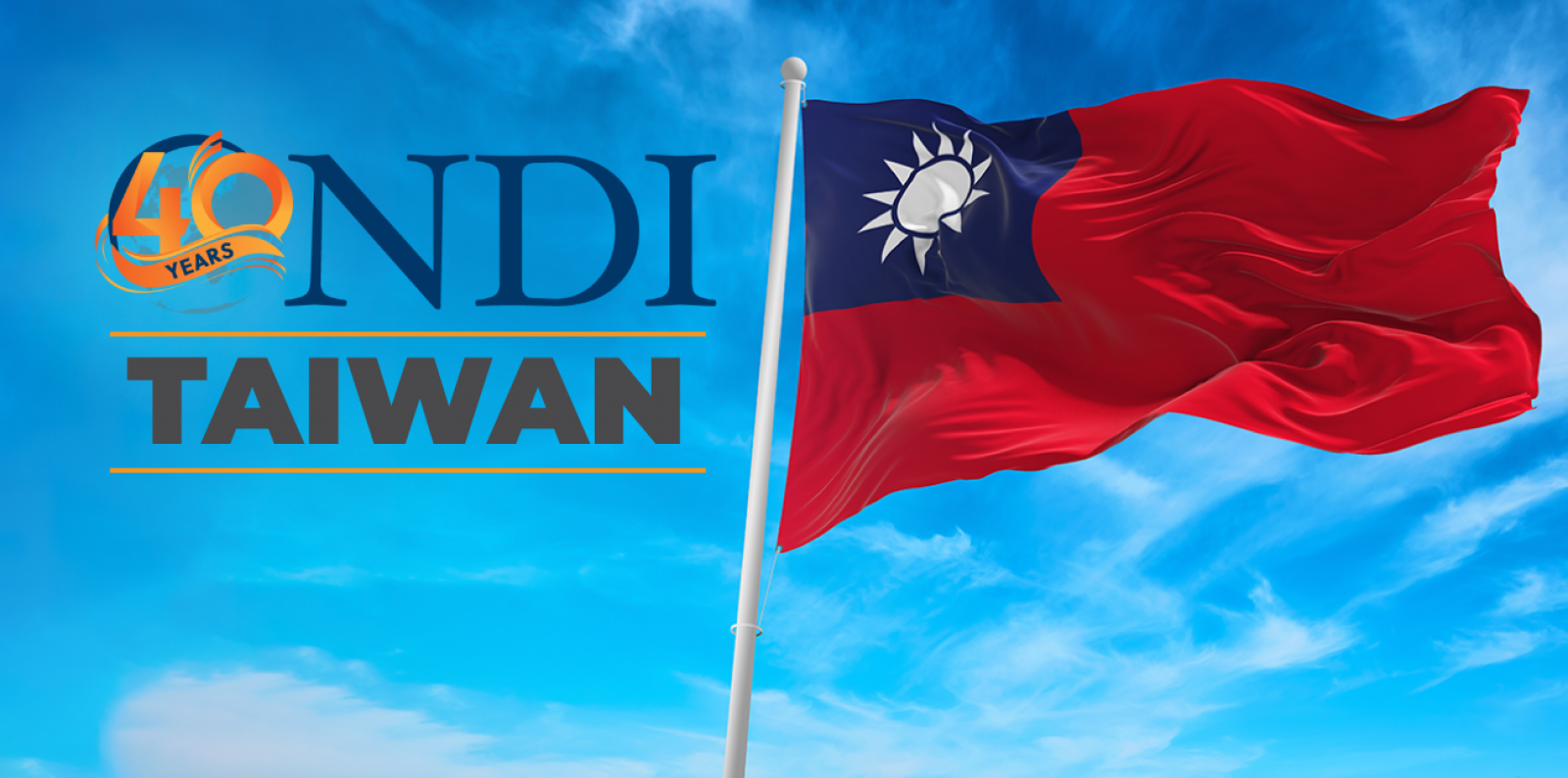
SHARE
Taiwan’s evolution over the past four decades to become one of the world’s foremost democratic success stories should be celebrated by all who cherish the preservation of human dignity and potential in Asia. Though elections were regularly held in Taiwan beginning in 1950, the 1948 “Temporary Provisions” to the constitution and the institution of martial law suppressed basic liberties, including the formation of opposition political parties to contest in elections, until martial law was lifted in 1987.
However, as the ruling Nationalist Party (Kuomintang, or KMT) government showed signs of liberalization in the mid-1980s, the opposition Tangwai (literally “outside the party”) movement took steps to form an opposition political party.
In this context, then-NDI President Brian Atwood, in mid-August 1986, led a four-person delegation to Taiwan to encourage continued democratic momentum and multiparty politics. The delegation met, among others, with government ministers and KMT party leaders, including Vice President (and future president) Lee Teng-Hui, opposition leaders and mediators of dialogues between the KMT and the Tangwai.
Brian was also invited to address a group of opposition activists. Before setting off for his public address, he received a note from the foreign ministry requesting a meeting at which the deputy foreign minister requested that Brian cancel his address. Noting that Congressman Steve Solarz had given a similar talk the prior year and that he believed the event was licensed, Brian responded that the government could revoke the permit if the event was so problematic. The official said that doing so would likely trigger demonstrations and other complications for the government, so he relented.
Expecting the address to be in a venue akin to a hotel conference room, Brian set off for the meeting. He noted as the vehicle proceeded to the site that there were increasing numbers of people on the street heading in the same direction. His interpreter told him that people must be going to the soccer stadium. It quickly became apparent that their vehicle was headed there as well.
To Brian’s surprise, he was the featured speaker to a crowd of 20,000 people at the very first opposition political rally permitted in modern Taiwan. His speech touched on the advantages of liberty and inclusion, referenced the democratic precepts of John Stuart Mill and outlined the democratic fundamentals of multi-party elections and representative institutions. Brian’s words, interpreted with passion by a translator, drew excited responses from the crowd. In hindsight, the rally’s conveners must have known that the event would test the boundaries of Taiwan’s liberalization.
Just weeks later, opposition leaders founded the Democratic Progressive Party (DPP). Although their party was not legally recognized, DPP candidates participated in the December 1986 elections, which became known as the first two-party contest in Taiwanese - or Chinese - history. [NDI's first visit to Taiwan provided a lesson that engaging key actors at sensitive junctures concerning the principles of multiparty democracy can contribute to developing democratic competition.]
In 2000, a DPP candidate became president, and today the DPP’s Tsai Ing-wen is in the final year of her two four-year terms with another competitive presidential election approaching next January. With the support of a broad range of political and civic actors, NDI opened an office in Taipei for the first time in 2020, which now serves as a regional hub to help foster partnerships that support democratic principles and practices across the Indo-Pacific region.
Author: Pat Merloe, Strategic Advisor to NDI
###
NDI is a non-profit, non-partisan, non-governmental organization that works in partnership around the world to strengthen and safeguard democratic institutions, processes, norms and values to secure a better quality of life for all. NDI envisions a world where democracy and freedom prevail, with dignity for all.


